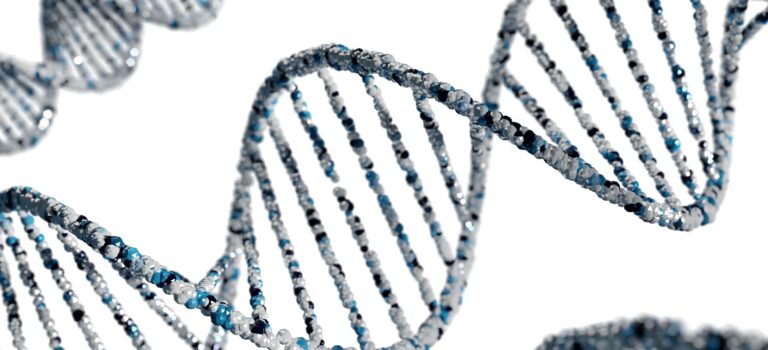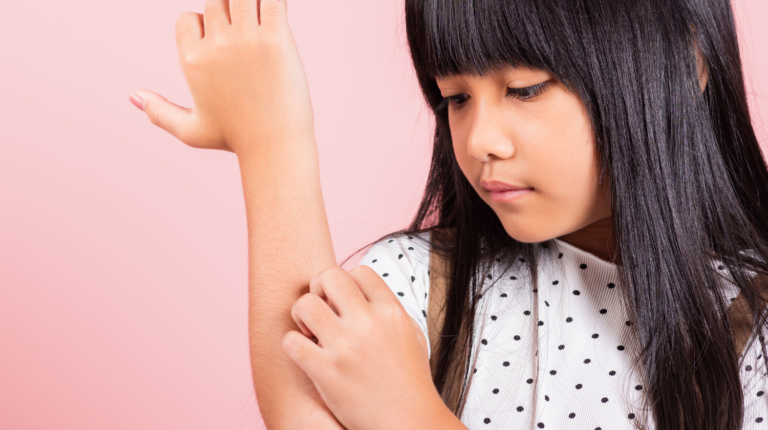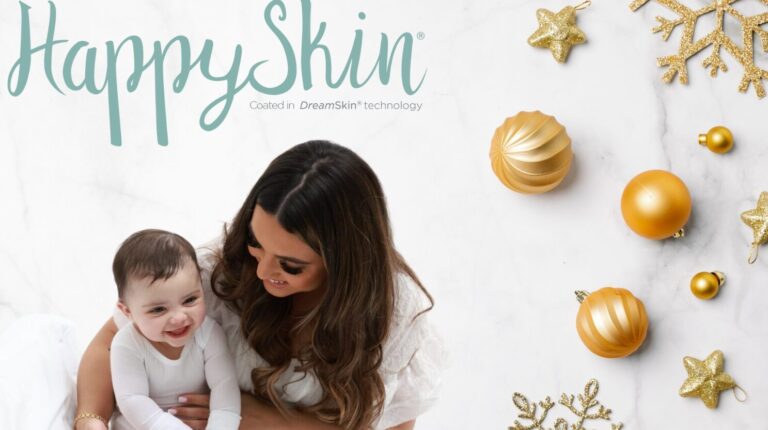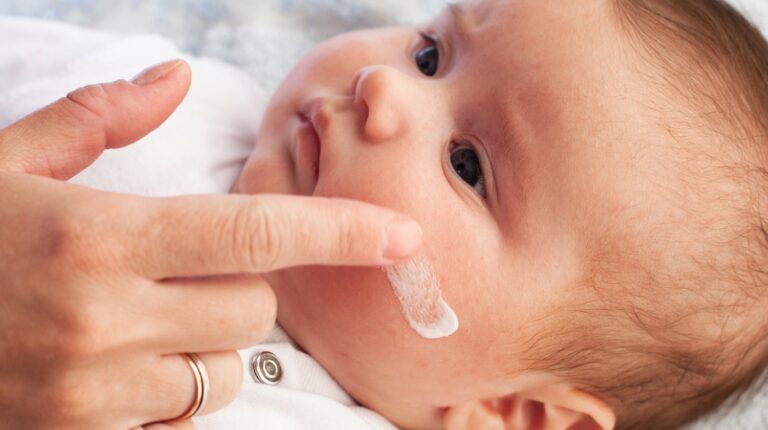
Eczema, or atopic dermatitis, is a fairly common skin condition in babies and young children.
Dry, red, and itchy skin usually starts to appear when babies are 3-6 months old and can make parents start to worry.
It can be helpful to know that you and your child aren’t alone, as eczema affects 20% of children in the UK.
But beyond that, parents often have a lot of questions about their baby’s chronic skin condition.
Here’s a quick guide to what causes eczema in babies and how to avoid eczema triggers.
What causes infant eczema?
Research into the causes of eczema is still ongoing, so there’s no definitive answer yet.
However, it’s widely understood that eczema is caused by a combination of genetic and environmental factors.
That means your baby is born with overly-sensitive skin and an overactive immune system, which reacts to irritants by causing inflammation.
This inflammation results in red and dry skin that can become flaky or scaly and feel itchy.
People with eczema tend to have a weaker skin barrier due to a lack of a protein called filaggrin, which makes it easier for moisture to escape and harmful bacteria to get in.
This is why the skin dries out so easily and is prone to infection.
While the condition is caused by genetic factors, eczema inflammation happens when the immune system is triggered by usually harmless substances.
Eczema is linked to other genetic conditions like asthma, hay fever, and food allergies where the body reacts abnormally to things like dust, pollen, pet hair, or food ingredients.
If your family has a history of conditions like these, it’s more likely that your baby will develop them, too.
Other than allergens and irritants, things like hormone levels, stress, and temperature changes can also affect eczema.
Since an exact single cause of eczema isn’t known, there’s currently no cure for the condition.
Eczema tends to come and go in ‘flare ups’ caused by environmental triggers.
It’s possible to control the condition by keeping your baby’s dry skin hydrated and tracking what causes their flare ups so you can avoid these things from then on.
What causes eczema flare ups in babies?
What triggers eczema in babies can vary from person to person, but here’s a list of common eczema triggers and what you can do to avoid them:
| Eczema triggers | What to do about them |
| Scratchy fabrics and tight clothes | Avoid wool and polyester, dress your baby in loose cotton clothes |
| Excessive heat | Keep your home at a comfortable temperature, give your baby short lukewarm baths |
| Sweat or drool | Don’t over-bundle your baby, gently wipe drool away as soon as possible |
| Fragrances | Use fragrance-free products, don’t wear perfume or spray air fresheners |
| Harsh soaps and cleansers | Use unscented alcohol-free soaps and laundry detergents safe for sensitive skin |
| Lack of hydration | Make sure your baby is eating/drinking enough, apply moisturising creams several times a day |
| Stress | Emotional and physical stress weakens the immune system, so try to keep your baby soothed and treat any issues like teething or illness as quickly as possible |
| Dry air | Use a humidifier, dress your baby in protective clothes/use a pram cover when you go out in winter |
| Metals (e.g. nickel) | Avoid jewellery or clothing with metal buckles or buttons |
| Allergenic foods | Try an elimination diet for things like soy, eggs, milk, wheat, and peanuts |
| Pet dander | Keep animals away from your baby |
| Cigarette smoke | Don’t let anyone smoke around your baby |
| Dust mites or mould | Keep your home clean, vacuum every day |
| Skin infections | Stay away from anyone with conditions such as herpes, impetigo, or cellulitis |
It can help to keep a written record of your baby’s eczema flare ups to identify what might have triggered them.
In the meantime, treat the dry skin with emollient creams and prevent your child from scratching.
How to soothe eczema flare ups in babies
Though your baby might not be able to express it properly, eczema can be very irritating and upsetting due to the uncomfortable itching.
Itchiness is the primary identifying symptom of eczema, but scratching the skin often makes the condition worse.
Severe itching can interrupt your baby’s sleep and cause stress that creates a cycle of eczema flaring up.
If your baby scratches a lot, it’s a good idea to dress them in protective clothing with built-in mittens and socks to keep moisture in and stop their nails from doing any damage.
HappySkin’s soothing baby clothes are designed to wear underneath regular clothes next to your baby’s skin, moisturising and reducing the itch.
Wearing protective and restorative garments can help to prevent future flare-ups by keeping irritants away from your baby’s sensitive skin.
Home treatments like these can go a long way in keeping your baby’s eczema under control so both parents and baby can enjoy a happy and stress-free life.
Remember that you should always take your baby to a doctor if their eczema becomes particularly severe, especially if it blisters or leaks fluid.
FREE Eczema Flare-up Diary
Struggling to identify triggers in your little one’s day? Use our helpful & free HappySkin eczema diary to help identify the root cause of your little ones eczema flare-ups.
Download FREE Eczema Diary





